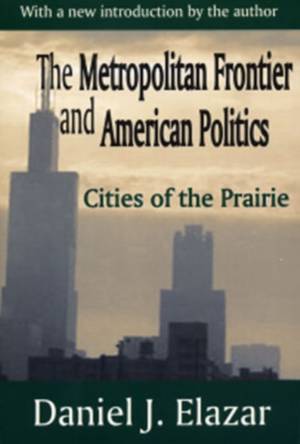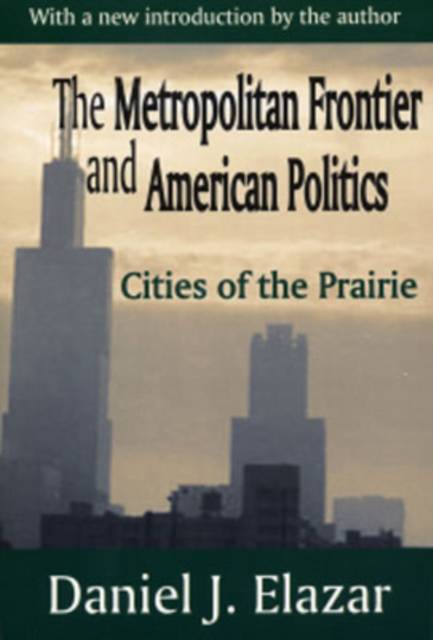
- Retrait gratuit dans votre magasin Club
- 7.000.000 titres dans notre catalogue
- Payer en toute sécurité
- Toujours un magasin près de chez vous
- Retrait gratuit dans votre magasin Club
- 7.000.000 titres dans notre catalogue
- Payer en toute sécurité
- Toujours un magasin près de chez vous
The Metropolitan Frontier and American Politics
Cities of the Prairie
Daniel Elazar
Livre broché | Anglais
59,45 €
+ 118 points
Description
American civilization has been shaped by four decisive forces: the frontier, migration, sectionalism, and federalism. The frontier has offered abundance to those who would/could take advantage of its opportunities, stimulated technological innovation, and been the source of continuous change in social structure and economic organization; migration has been responsible for relocating cultures from the Old world to the New; various sections of geographic territories have adjusted to the overall American culture without losing their individual distinctiveness; and federalism has shaped the United States' political and social organization.The Metropolitan Frontier and American Politics was begun in the late 1950s under the auspices of the University of Illinois Institute of Government and Public Affairs as a study of the eight "lesser" metropolitan areas in Illinois. What started out as a design for "community maps" of each area, with the intent to outline their particular political systems, led to a major study of metropolitan cities of the prairie--the "heartland" area between the Great Lakes and the Continental Divide--with an examination of the processes that have shaped American politics.The distinctive features of geographic areas that Elazar discovered can be understood as reflections of the differences in cultural backgrounds of their respective settlers. Understanding these communities requires an examination of their place in the federal system, the impact of frontier and section upon them, and a study of the cultures that inform them as civil communities. The volume is consequently divided into three parts: "Cities, Frontiers, and Sections," "Streams of Migration and Political Culture," and "Cities, States, and Nation," each of which explores Elazar's concerns in discovering the interrelationship between the cities of the frontier and American politics.A prequel to The Closing of the Metropolitan Frontier (published by Transaction in 2002), The Metropolitan Frontier and American Politics will be of great interest to students of politics, American history, and ethnography.
Spécifications
Parties prenantes
- Auteur(s) :
- Editeur:
Contenu
- Nombre de pages :
- 538
- Langue:
- Anglais
Caractéristiques
- EAN:
- 9780765809551
- Date de parution :
- 28-02-03
- Format:
- Livre broché
- Format numérique:
- Trade paperback (VS)
- Dimensions :
- 152 mm x 224 mm
- Poids :
- 721 g







